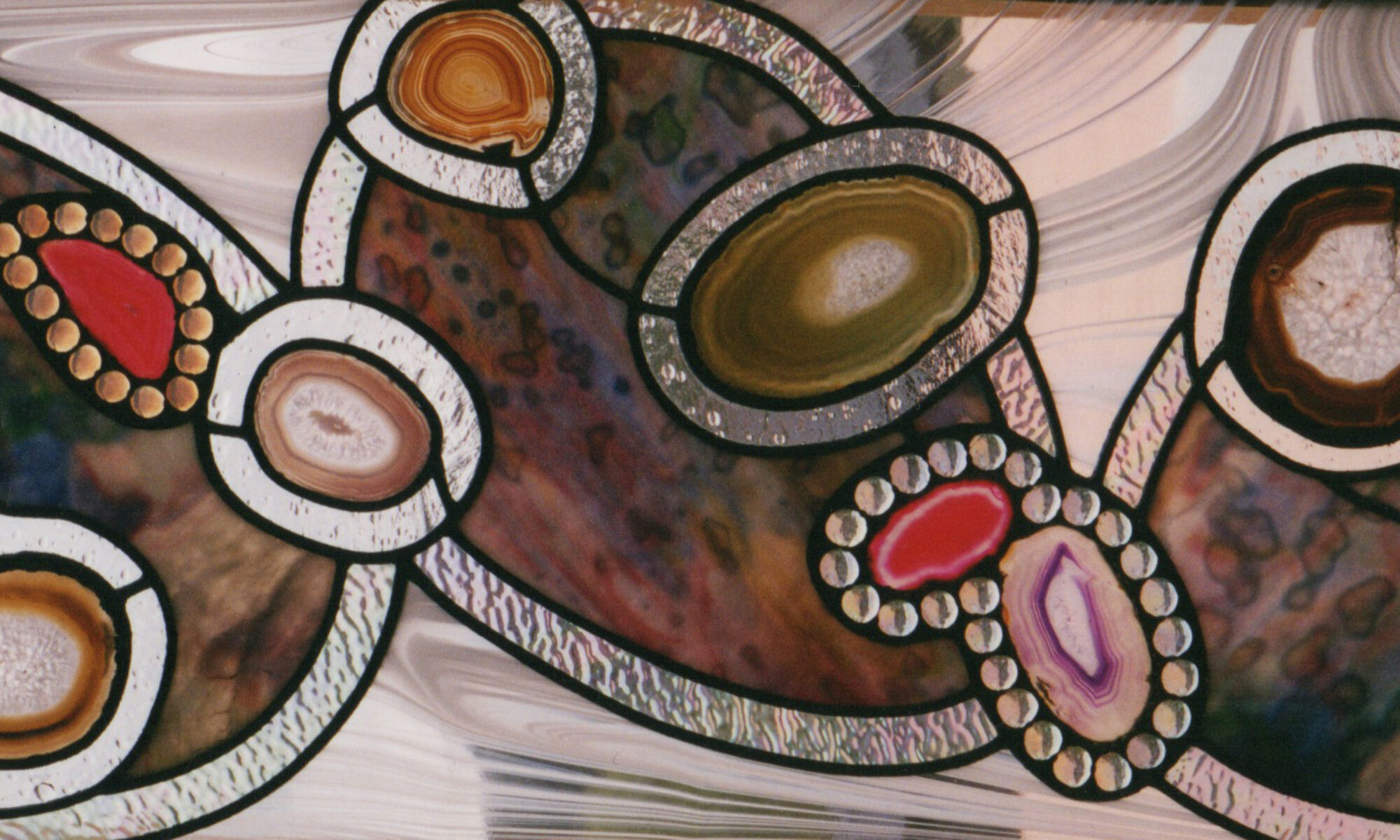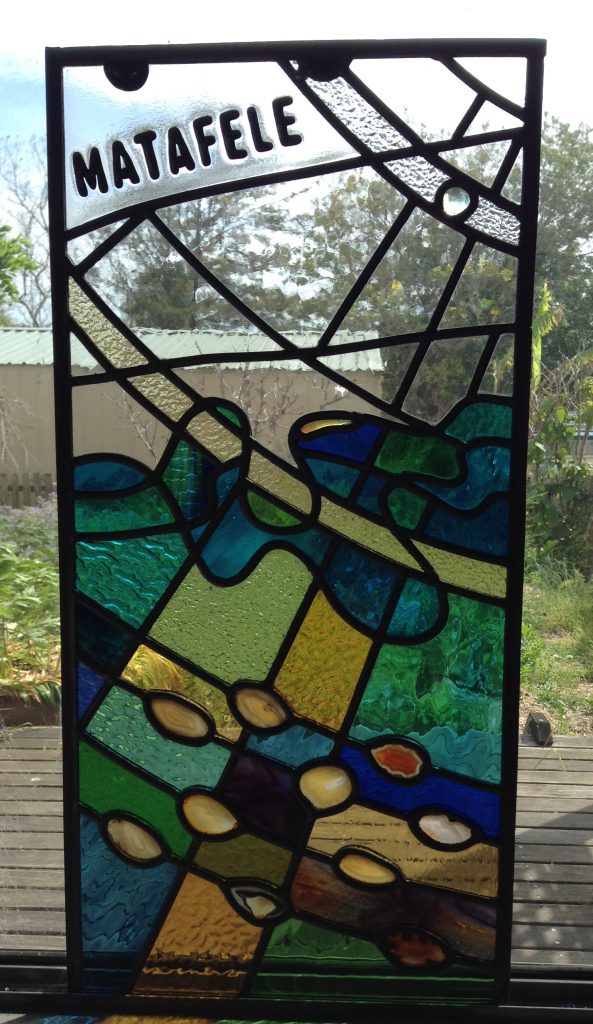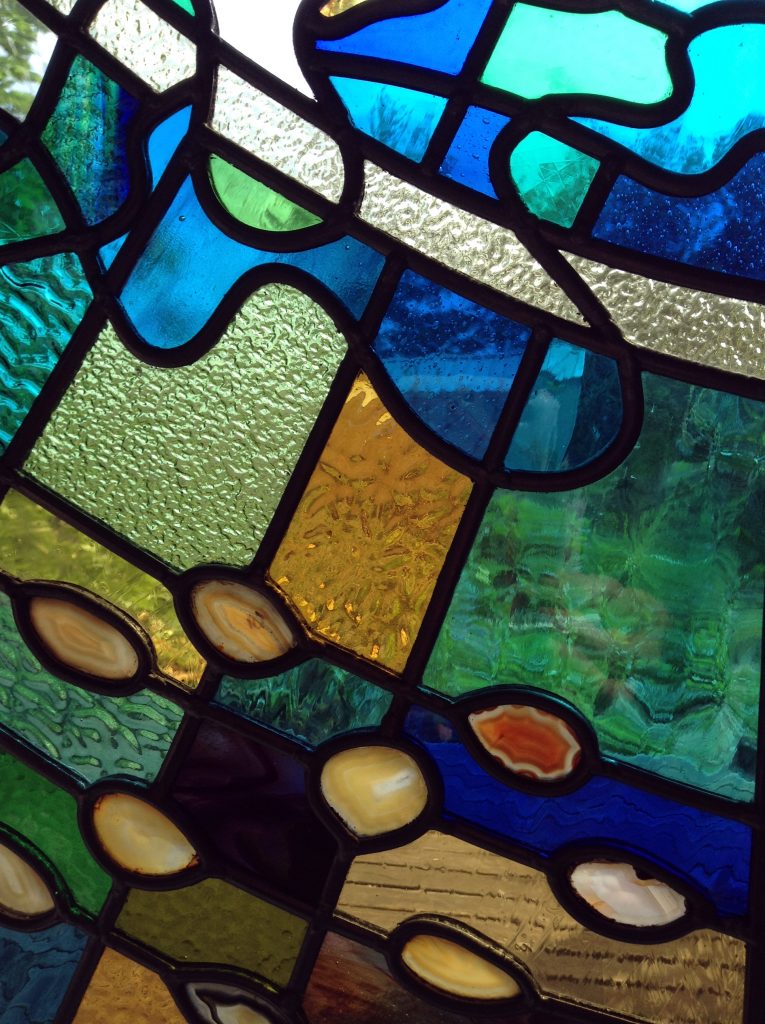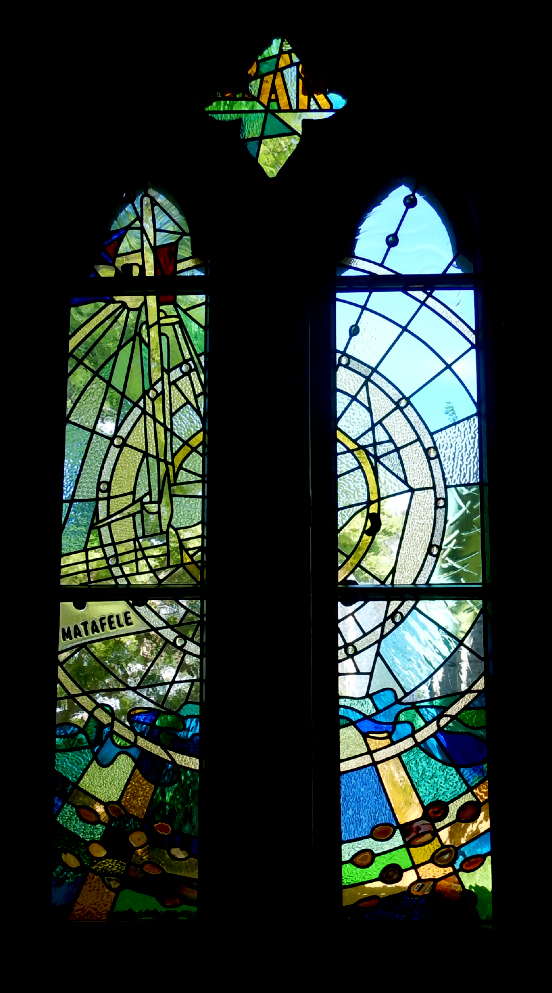These beautiful windows were designed and created by Margaret Ella, leadlight artist of Kurri Kurri, NSW.
A ghostly manifestation of the bow of the ship moves from the left hand window into the right surrounded by circles of light. Shafts of light radiate downwards, illuminating the watery depths.
Each man is individually honoured with twenty stone agates symbolising the RAN sailors, four blue glass beads representing the officers and thirteen clear glass beads the islander crewmen.
The vibrantly coloured paua shell in the lower right hand corner cannot be seen through representing the unrealised potential of all the lives that were so tragically lost.
Presented by the descendants of the Arnold and Burkitt families of Kangaroo Point who have treasured St Mary’s as a place of worship, community and celebration for over 100 years.
Dedicated by Canon Gary Harch, Rector of St Mary’s Church, Sunday 14th May 2017.
History
Matafele (the name means “Eye of the coconut”) was built in Hong Kong in 1938 for the Burns Philp shipping line and operated on the passenger-cargo routes of the Pacific Islands until 1942 manned by European Officers and a Pacific Islander crew.
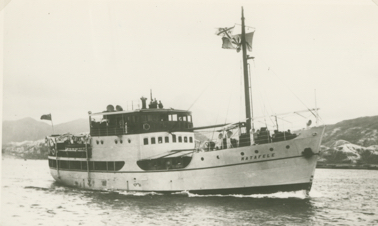
Matafele was the last vessel to escape Rabaul (on the island of New Britain) in January 1942 as a Japanese invasion force landed. The ship reached Australia undetected and was then assigned to transport military stores around northern Australia before being later based at Port Moresby transporting military stores around the coasts of Papua and New Guinea.
In December 1942, a 12-pound anti-aircraft gun was fitted aft, the bridge reinforced with bullet-proof plating and extra ballast installed. On 1st January 1943, Matafele was commissioned as a ship of the Royal Australian Navy with a naval complement of officers and sailors with the islander crewmen volunteering to continue; HMAS Matafele is the only ship of the RAN to be commissioned whilst at sea. Her role was the transport of stores as well as survey and navigation duties. In early 1944, Matafele was refitted in Sydney and tasked with transporting cargo from various Queensland ports to Milne Bay.
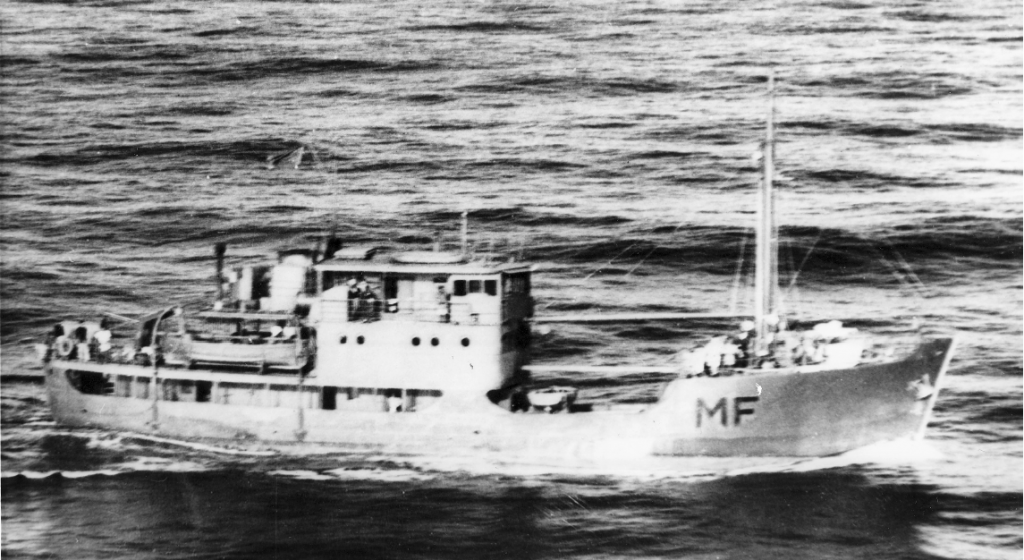
On 18th June 1944, Matafele departed Townsville for Milne Bay via the Coral Sea and China Straight laden with 215 tons of naval stores. Failing to reach Milne Bay as scheduled on 22nd June, a radio request was made the next day for Matafele to report her position but there was no reply despite a second transmission ordering her to break radio silence and report. On 24th June, an RAAF aircraft overflying China Straight (which connects the Coral Sea and the Solomon Sea) reported seeing the vessel underway but “struggling close to the coast in heavy weather”. Four corvettes, two motor launches and aircraft from Cairns and New Guinea were sent on a fruitless search. Two damaged boats and an oar with the ship’s name carved into it were later found off the south coast of Papua. Two subsequent Naval Boards of Inquiry were unable to determine the ship’s fate and a post-war inquiry ascertained that there had been no Japanese submarines in the area at the time.
Four officers, 20 RAN sailors and 13 Pacific Islander crew lost their lives, the date being presumed as 24th June 1944. The names of these men are recorded below and these windows are dedicated to their memory.
- George Wallace Arnold
- Gordon Clinton Beecraft
- Thomas William Bracher
- James Leslie Bucklow
- John Coleman
- Frederick William Alfred Ellery
- Cyril Frank Raymond Gilbert
- William Hogg Halyburton
- William Francis Hickling
- Donald William Kluver
- William Mortimer Kuhlmann
- John Joseph McNally
- Keith McNicol Morrison
- Roy Edward Newton
- Victor Pearson
- Jack Prideaux
- James Harold Sands
- Joseph Patrick Seery
- Leonard Squires
- Charles Frederick Symonds
- Brian Douglas Tamplin
- Leonard James Tunney
- Ronald Upton
- Guy Edward Watkins
The Pacific Islander crewmen:
- Arabilo
- Arkon
- Bena
- Cardap
- Dicky
- Huss
- Jaoul
- Lambousi
- Landumbi
- Taima
- Tarahan
- Tupin
- Taraco
